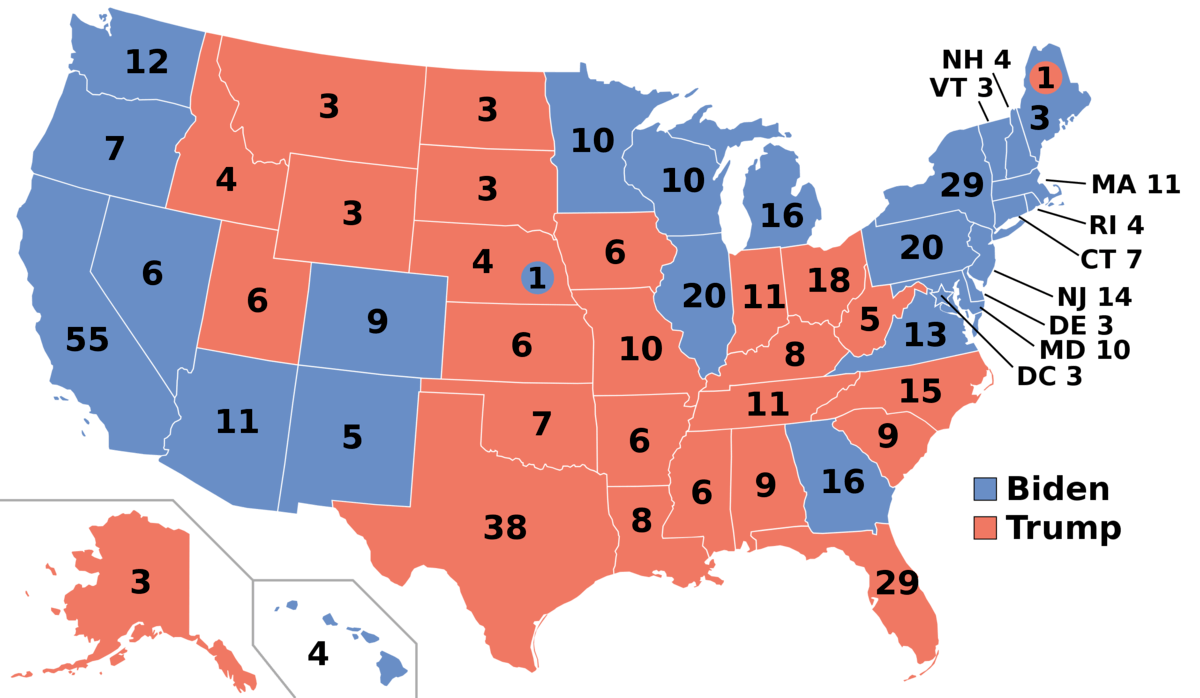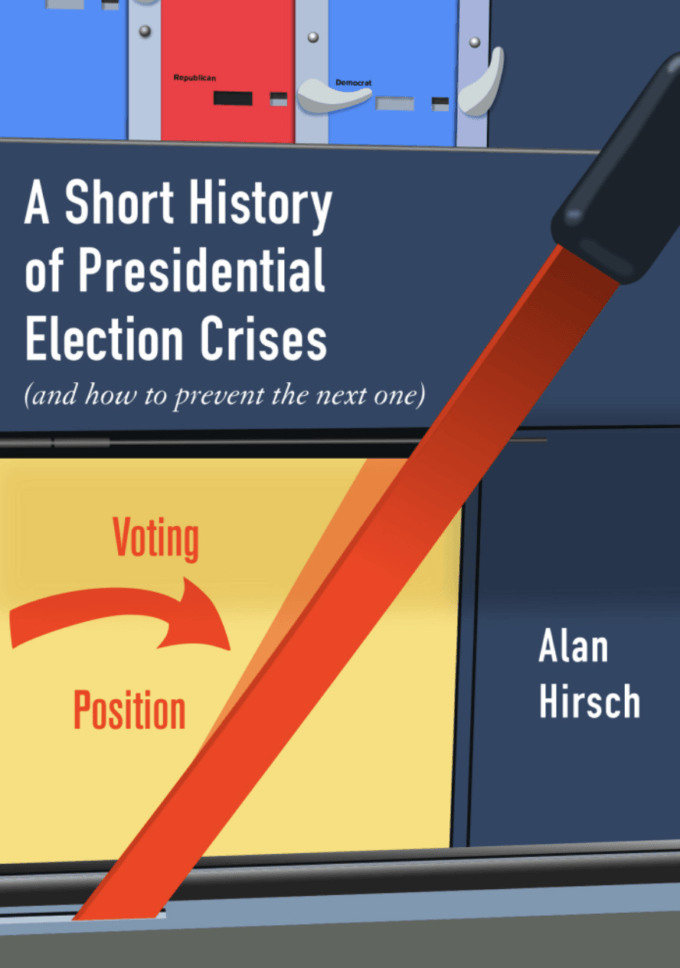
Image Source: Electoral College 2020 – Public Domain
Donald Trump’s insistence that the presidential election was rigged appears baseless. When the Electoral College meets on December 14, electors will presumably cast their votes in accordance with the election results and make Joe Biden the 46th president of the United States. That’s as it should be, but it should not blind us to this disconcerting truth: The Electoral College invites fraud.
It does so because, instead of looking toward the candidates’ overall vote totals nationwide, it aggregates 51 smaller elections. As a result, fraud can determine the outcome if the election is close in just one or more states – even if one candidate wins decisively nationwide.
Just look at the Trump-Biden election. Biden defeated Trump by more than 6 million votes – far beyond the margin of realistic fraud. But in several battleground states, totaling enough electoral votes to change the outcome, the margin is sufficiently close that Trump has managed to convince millions of people he was robbed.
As a straightforward historical fact, the Electoral College produces squeakers far more often than does the national popular vote. In 1948, for example, a flip of just 31,000 votes in four states would have made  Thomas Dewey president – despite the fact that Harry Truman won the national vote handily. To change the latter, election thieves would have needed to flip well over one million Truman votes to Dewey’s column. Similarly, in 1976, Gerald Ford would have defeated Jimmy Carter with a shift of just over 9,000 votes combined in Ohio and Hawaii. For Ford to have won the national popular vote, however, would have required flipping 841,000 votes.
Thomas Dewey president – despite the fact that Harry Truman won the national vote handily. To change the latter, election thieves would have needed to flip well over one million Truman votes to Dewey’s column. Similarly, in 1976, Gerald Ford would have defeated Jimmy Carter with a shift of just over 9,000 votes combined in Ohio and Hawaii. For Ford to have won the national popular vote, however, would have required flipping 841,000 votes.
The 2016 election provides another excellent example. Hillary Clinton received almost three million more votes than Donald Trump – a swing of more than 1.4 million would have been needed to change that outcome. By contrast, a swing of fewer than 62,000 votes in Florida and Michigan combined would have changed the Electoral College from Trump to Clinton. For good measure, tiny swings in Pennsylvania and Wisconsin, and small swings in Arizona and North Carolina, would have changed the Electoral College result dramatically.
The 2000 election provides the clearest example, because it was uncommonly close. Flipping a few hundred votes in Florida could have changed the Electoral College outcome. By contrast, 272,000 Al Gore votes would have to have swung to George W. Bush to change the popular vote winner. Even in this uncommonly close election, more than half a million votes separated the candidates nationwide. That, in a nutshell, is why a national popular vote would safeguard against fraud: In a contest featuring 150 million votes, even very close elections produce comfortable margins nationwide.
The Electoral College presents would-be fraudsters a golden opportunity. They must switch only a small number of ballots in a few states to steal the election. It is true that they would need to know in advance which states would be close. In this day and age, however, you don’t need a Ph.D in political science to predict which states will prove decisive: You need only read the newspaper. Consider how well known it was that the 2020 election could come down to Michigan, Pennsylvania, and Wisconsin. Arizona and Georgia were also rightly regarded as swing states.
The proof is in the pudding. In four of our last six presidential elections (all but 2008 and 2012), the losing party alleged that fraud cost their candidate the White House. Such claims are bolstered by the artificial closeness of these races created by the Electoral College. There are several more prominent arguments for abolishing the archaic and undemocratic Electoral College. But even those who disagree with those arguments should recognize that the Electoral College increases the risk of fraud.
The post The Electoral College Invites Fraud appeared first on CounterPunch.org.
This post was originally published on Radio Free.